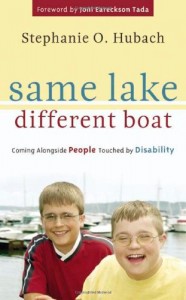Answers for (mis) Communication
Posted on August 22, 2014

I remember hearing that “communication is key” when I first began ministry. At the time, to me this meant that it was necessary to be able to express my ideas clearly and consistently. After many failed attempts at communication, tears shed, and water under the proverbial bridge, I’ve come to see communication as so much more than I once did.
Now, more than ever, I see communication as vital in ministry – especially in PURE ministry. Disability ministry is full of opportunities for misinterpretation on every level. Lets take 3 areas/opportunities for clear, open communication OR confusion and frustration.
Communicating with Parents & Caregivers
On an individual level, communicating with PURE parents can be stressful and  fraught with opportunities for misunderstanding. Very often I hear ministry leaders complain that PURE parents are hesitant to open up about their child’s diagnosis. This is most likely because of prior experiences that taught them to carefully guard information. But still the ministry leader is faced with exactly how to extract information from caregivers and parents.
fraught with opportunities for misunderstanding. Very often I hear ministry leaders complain that PURE parents are hesitant to open up about their child’s diagnosis. This is most likely because of prior experiences that taught them to carefully guard information. But still the ministry leader is faced with exactly how to extract information from caregivers and parents.
Katie Wetherbee, from Hope for Learning, writes eloquently and passionately about communication with parents on her blog Diving for Pearls. Katie believes that, “Good communication builds trust.” I’ve listed a few of her articles below that show us how to build trust with parents:
- What I Learned at the Surgery Center
- Safety Slims: A Tool for Traveling
- What’s in a Name? {Why greeting students matters in a BIG way}
- IEP’s at Church: Yes or No
- Communication and Confidentiality: Building Trust
- Communication and Confidentiality: Say THIS, not THAT
Katie will be joining me on Shaping Special Hearts on Tuesday, August 26th at noon EST to unpack more ideas about effective communication with parents.
Communicating with Volunteers…and potential Volunteers
This is never an easy task because there are more of them than there are of you. You probably have this remarkable, God-given vision for your ministry but only so much time you can devote to sharing it because you are also so busy doing it, right? The good news is that by learning a few social media tips, you can push out positive stories from your ministry, share useful training materials, and publicize events to volunteers.

Social media maven, Barb Dittrich from Snappin’ Ministries, shared many strategies for using technology to do your talking for you at the 2014 Accessibility Summit at McLean Bible Church. Her recommendation of Rewired by Brandon Cox explained the importance of taking the time to use just a few
Barb will be joining me on Shaping Special Hearts on Tuesday, September 9th at noon EST to explain the advantages and potential of using social media to share your ministry vision.tools vital to communication in today’s world.
Communicating with Church Leadership
On a corporate level, your church may see this as a ministry of care and mercy (which it is) but, interestingly, limit it by doing so. You see this kind of misinterpretation in practice when it becomes custom to introduce our PURE friends by their diagnosis or only in identification with the “Special Needs Ministry,” instead of as a living, breathing, vital contributor to the Body of Christ. This may be an indicator that the vision of the ministry to PURE friends within a church has not been clearly communicated.
 Stephanie Hubach offers exceptional advice on communicating with leadership in order to lead a reformation (not a bloody revolution) in church. Her book Same Lake, Different Boat is an excellent resource for this topic, and so much more.
Stephanie Hubach offers exceptional advice on communicating with leadership in order to lead a reformation (not a bloody revolution) in church. Her book Same Lake, Different Boat is an excellent resource for this topic, and so much more.
Stephanie will be joining me on Shaping Special Hearts on Tuesday, September 23rd at noon EST to answer questions like:
- It is frustrating when God has moved in the hearts of people before he has moved “the machine.” How can we begin laying a really good foundation about how churches, ministries and programs fit into the scheme of this?
- Stephanie, you have very aptly said that you think one of “the greatest barrier(s) to disability ministry in the local church is anxiety.” You broke that down into 2 levels, personal and systems. Can you unpack the anxieties on both the personal level and the systems level for our listeners?
- One of the things you emphasize is a posture of humility. Why do you believe this is such a necessary part of a good communication approach when introducing ministry to people with special needs to church leadership? (from Stringing Others Along vs. Kantian Ethics)

